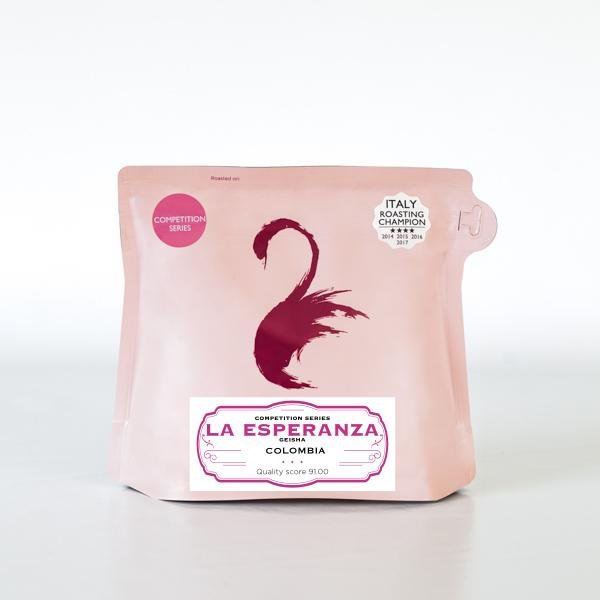QUALITY SCORE: 91.00
*Competition Series*
Meyer lemon / Rose / Watermelon / Peach / Gingerbread
suggested for espresso and filter
PLEASE NOTE
We roast to order all coffees on Wednesday and Saturday, dispatching on next working day. Cut-off time is 8am UTC+1
Technical detail
Asaias Cantillo Colombia
Producer Country
Huila 1760 mt
wet (washed) Gesha
November16 April 17
600 kg Vacuum packs
Lot size Arrived in
Self-made
Rubens Gardelli drum roaster
Roast profile by Roasted on
THE STORY BEHIND
We only got to know Don Asaias Cantillo very recently but he has surprised us with this beautiful Gesha that he grows in the south of Colombia on the western slopes of high mountains that separate Huila from the Amazon. Asaias is a small farmer, but he works very careful and mixes decade old techniques he learnt from his father, with new trends in Colombia like drying in African beds. Asaias grows part of his crop, that does not only consist of Gesha, under shade trees, and believes in giving his trees the right amount of space between them. He does not use herbicides, but leaves good weeds between the coffee trees to prevent soil erosion and to balance the nutrients in the ground. This year we were only able to buy a small lot of his Gesha, but with the next harvest we hope to secure a larger quantity and we’re also looking forward to his other varietals.
THE FERMENTATION PROCESS
Washed coffees focus solely on the bean. They let you taste you what’s on the inside, not the outside. Washed coffees depend almost 100% on the bean having absorbed enough natural sugars and nutrients during its growing cycle. This means the varietal, soil, weather, ripeness, fermentation, washing, and drying are absolutely key.
Washed coffees reflect both the science of growing the perfect coffee bean and the fact that farmers are an integral part of crafting the taste of a coffee bean. When looking at washed coffees, it becomes apparent that the country of origin and environmental conditions play a vital role in adding to the flavour.
During wet processing, the pulp (i.e.the exocarp and a part of the mesocarp) is removed mechanically. The remaining mesocarp, called mucilage, sticks to the parchment and is also removed before drying. During this process, the sugars present in the mucilage are removed through natural fermentation or mechanical scrubbing. Mucilage is insoluble in water and clings to parchment too strongly to be removed by simple washing. Mucilage can be removed by fermentation followed by washing or by strong friction in machines called mucilage removers. Fermentation can be done by stacking the coffee outside or placing them under water and allowing nature to take its course. After the sugars are removed, the beans then can be taken through a secondary washing to remove any additional debris, or taken immediately to the beds for drying.
THE VARIETY
Rare, exclusive and fetching a heavy price tag, Gesha is often associated with coffees from Panama when in fact cultivation of the Gesha varietal only began there in the 1960s. Gesha is an original variety of coffee that was discovered in the 1930s in the mountains around the Southwestern town of Gesha, Ethiopia. Gesha trees grow tall and can be distinguished by their beautiful and elongated leaves. The quality of this coffee can be drastically improved when grown at extremely high elevation.
We welcome wholesale partners!
If you're a retail store or coffee shop, please
Contact Us for more information.









